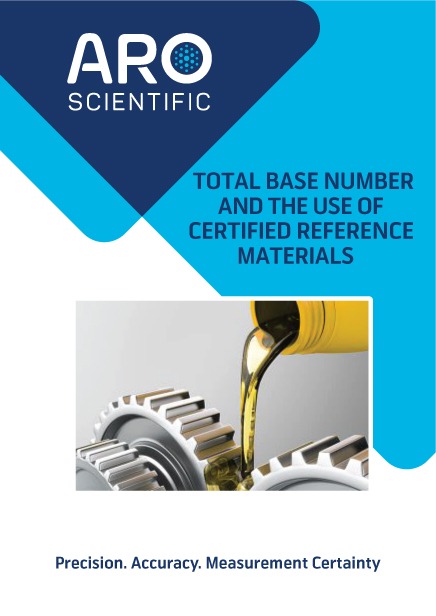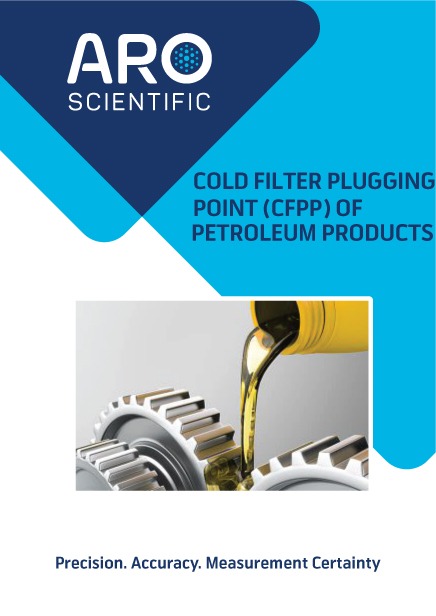Total Base Number and the use of Certified Reference Materials

Introduction
In the field of analytical chemistry, accuracy is paramount. When analysing samples to determine the Total Base Number (TBN), it is crucial to have reliable reference materials to ensure accurate results. Certified Reference Materials (CRMs) play a vital role in maintaining precision and accuracy in TBN analysis, as they provide a benchmark against which samples can be compared. This blog explores the importance of total base number in various industries, as well as the utilization of certified reference materials to maximize accuracy and enhance confidence in analytical results.
Understanding the Total Base Number (TBN)
Total Base Number (TBN) is used in the field of analytical chemistry, and it is the measure of the reserve alkalinity in a sample. This parameter is particularly important in industries such as petroleum, automotive, and marine, where TBN analysis is crucial for monitoring the performance and quality of lubricants and oils.
The TBN value provides valuable information about the lubricant's ability to neutralise acidic components and prevent engine wear. By accurately measuring TBN, manufacturers can optimise the formulation of their products, ultimately leading to improved efficiency and reduced maintenance costs.
To ensure the accuracy and reliability of TBN analysis, the utilisation of certified reference materials (CRMs) is essential. CRMs act as a benchmark and enable analysts to calibrate their instruments, validate methodologies, and verify the accuracy of their results. Without the use of CRMs, there is a higher risk of obtaining incorrect TBN values, which can have far-reaching consequences.
The role of TBN in lubrication and engine performance
TBN, or Total Base Number, is a key parameter in lubricant analysis that plays a significant role in determining the performance and longevity of engines and machinery. TBN measures the alkaline reserve in a lubricant, which is crucial for neutralising acidic byproducts formed during combustion and protecting vital engine components from corrosion.
Maintaining the optimal TBN level in lubricants is essential for ensuring proper engine functionality and minimising engine wear. When TBN levels are too low, acids can build up in the oil, leading to increased corrosion and accelerated component deterioration. On the other hand, excessively high TBN levels can result in the formation of deposits and sludge, negatively impacting engine performance.
By accurately measuring TBN using reliable analytical techniques and certified reference materials, lubricant manufacturers, and operators can make informed decisions about the appropriate time for oil changes and optimise their maintenance schedules. This ultimately leads to extended equipment life, improved fuel efficiency, and reduced overall maintenance costs.
The impact of TBN on maintenance and longevity
Now that we understand the significance of TBN in lubricant analysis, let's delve deeper into the impact it has on maintenance and longevity of engines and machinery.
When it comes to maintenance, maintaining the optimal TBN level is crucial. Regular monitoring of TBN levels allows lubricant manufacturers and operators to determine the appropriate time for oil changes. This proactive approach ensures that the lubricant's alkaline reserve is at its optimum level, effectively neutralizing acidic byproducts and preventing corrosion.
By optimising maintenance schedules based on TBN measurements, operators can extend equipment life and reduce overall maintenance costs. Regular oil changes performed at the right time prevent the formation of harmful deposits and sludge, which can negatively impact engine performance.
In addition to maintenance, TBN also plays a significant role in determining the longevity of engines and machinery. By keeping TBN levels within the recommended range, lubricants effectively protect vital engine components from corrosion and wear. This not only improves the overall reliability of the equipment but also enhances fuel efficiency.
Base Number Standard Test Methods for Reliable Analysis
International standard test methods for base number analysis play a vital role in oil analysis. These standards are established and published by recognised bodies such as the American Society for Testing and Materials (ASTM), Energy Institute (EI), the International Organisation for Standardisation (ISO), and other recognised bodies.
The international standard test methods published specify the methods and techniques used for determining the total base number, e.g., ASTM D2896, IP 276, and ISO 3771. These international standard test methods are designed specifically for use in determining base number in petroleum products by potentiometric titration, including the type of titrant to be used, the procedure for the titration, and the calculation of the base number. Adhering to these standards ensures that the total base number measurements are accurate and reliable, which is crucial for effective analysis.
The significance of Certified Reference Materials (CRMs)
Certified Reference Materials (CRMs) play a crucial role in ensuring accuracy and reliability in TBN analysis. These materials are carefully selected and prepared to have known and traceable properties, making them ideal for calibrating instruments, validating methodologies, and verifying the accuracy of results.
One of the key benefits of using CRMs is that they act as a benchmark, allowing analysts to compare their measurements against a known reference value. This enables them to identify any potential biases or errors in their analysis and make necessary adjustments to improve accuracy.
In addition to calibration, CRMs also aid in quality control by helping analysts assess the precision of their measurements. By analysing multiple samples of the same CRM, analysts can monitor the variability in their results and ensure consistency in their analytical processes.
Furthermore, CRMs are essential for method development and validation. Analysts can use these materials to establish the performance characteristics of their methods, such as precision, and accuracy. This ensures that the selected analytical method is fit for purpose and provides reliable results.
Conclusion: Emphasising the importance of TBN and CRMs
Maintaining the optimal TBN level is essential for effective maintenance. Regular monitoring of TBN levels allows for timely oil changes, preventing the formation of harmful deposits and sludge that can negatively impact engine performance. By optimising maintenance schedules based on TBN measurements, operators can extend equipment life and reduce overall maintenance costs.
Furthermore, TBN plays a significant role in determining the longevity of engines and machinery. By keeping TBN levels within the recommended range, lubricants effectively protect vital engine components from corrosion and wear, enhancing fuel efficiency and overall reliability.
The use of CRMs provides a known reference point for comparing the measurement results obtained from the CRM to the certified values, the accuracy and reliability of the measurement system can be assessed and adjusted if necessary.
ISO 17034 accreditation of the reference material producer benefits users of reference materials as it provides confidence in the competence of the producer to characterise such materials.
ARO Scientific offer a range of Total Base Number (TBN) / Base Number (BN) Certified Reference Materials that have been characterised in accordance with ASTM D2896, Procedure A. Manufacture and characterisation has been performed in accordance with its accreditation to ISO/IEC 17025 and ISO 17034, UKAS CAB No. 27393.




